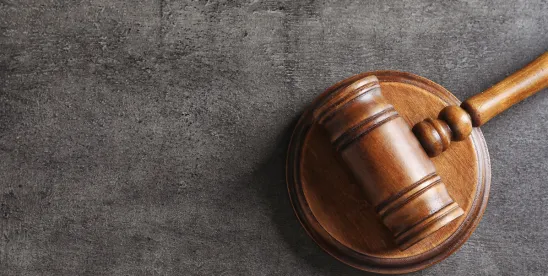On June 27, 2024, the United States Supreme Court issued its decision in Harrington v. Purdue Pharma LP, addressing the question of whether a company can use bankruptcy to resolve the liability of non-debtor third parties. The Supreme Court, in a 5-4 decision, held that the bankruptcy code does not authorize a release and an injunction that, as part of a plan of reorganization under Chapter 11, effectively seek to discharge the claims against a nondebtor without the consent of the affected claimants.
In Purdue Pharma, the debtor filed for bankruptcy to resolve tens of thousands of opioid related lawsuits. The Supreme Court noted that the debtor proposed a plan that provided not only for a discharge of creditors claim against it, but also provided that certain insiders (i.e. shareholders, officers, directors and affiliates) would receive a release and the benefits of an injunction in exchange for contributing billions of dollars into the debtor’s estate for distribution to claimants. The bankruptcy court ultimately confirmed a reorganization plan resolving the opioid claims not just for the benefit of the debtors, but also certain third parties that did not file for bankruptcy. On appeal, the Second Circuit held that Chapter 11 plans may include such non-consensual third party releases if the facts of the case justify the release.
In its decision, the Supreme Court reasoned that no provision of the bankruptcy code expressly authorizes a bankruptcy court to grant non-consensual releases or injunctions for the benefit of non-debtor third parties. The Supreme Court further reasoned that “catch all” provisions of the bankruptcy code, such as Sec. 1123(b)(6) and Sec. 105, do not indirectly provide authority to grant such non-consensual non-debtor third-party releases. As such, the Supreme Court reversed the decision of the Second Circuit.
As important as the decision itself, are the issues that the Supreme Court explicitly did not address:
- The court’s ruling explicitly does not call into question consensual third-party releases offered in connection with a bankruptcy plan. The court noted that consensual releases pose different questions and may rely on different legal grounds than the non-consensual release addressed in the Purdue Pharma
- The court’s ruling does not address at all the question of what qualifies as a consensual third-party release in a plan of reorganization.
- The court’s ruling does not address a plan of reorganization that includes a third-party release and provides for the full satisfaction claims asserted against the third party.
- Finally, the court’s ruling is in the context of a confirmation order that is subject to a stay pending appeal. As such, the court’s ruling does not address the question of whether its ruling would justify the unwinding of reorganization plans that have already become effective and have been substantially consummated.
While the Purdue Pharma decision resolves a controversial issue by holding “that the bankruptcy code does not authorize a release and injunction that, as part of a plan of reorganization under Chapter 11, effectively seeks to discharge claims against a nondebtor without the consent of affected claimants,” the Supreme Court decision is very narrow. As such, parties in bankruptcy cases will still be required to litigate a number of related issues specifically listed by the court in its opinion.




 />i
/>i

